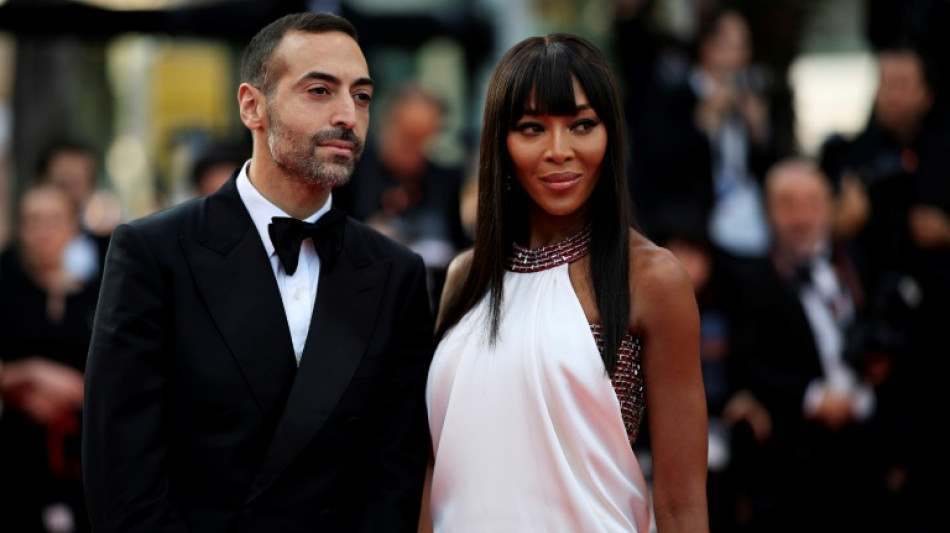
-
 Amnesty accuses Israel of 'live-streamed genocide' against Gazans
Amnesty accuses Israel of 'live-streamed genocide' against Gazans
-
Spotify posts record profit in first quarter
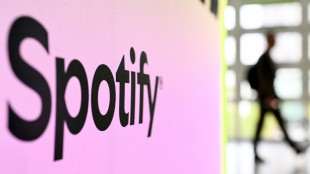
-
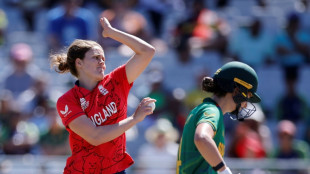 Sciver-Brunt named as England women's cricket captain
Sciver-Brunt named as England women's cricket captain
-
GM profits top estimates, but automaker reviewing outlook due to tariffs
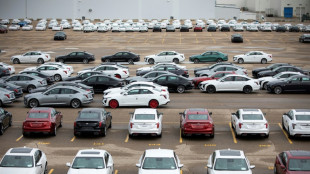
-
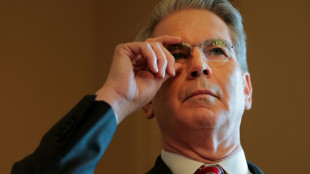 Stock markets edge up as Trump softens tariff pain for auto firms
Stock markets edge up as Trump softens tariff pain for auto firms
-
Pricier trainers? Adidas warns on US tariff impact
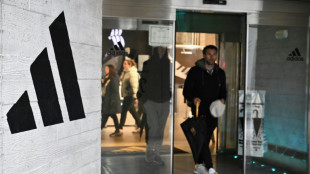
-
 Spain, Portugal rule out cyberattack for massive blackout
Spain, Portugal rule out cyberattack for massive blackout
-
Suryavanshi, 14, dubbed India's next superstar after shattering records
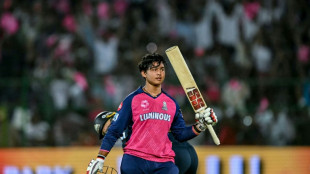
-
 Power back in Spain, Portugal after massive blackout
Power back in Spain, Portugal after massive blackout
-
Pakistan says it shot down Indian drone along Kashmir border
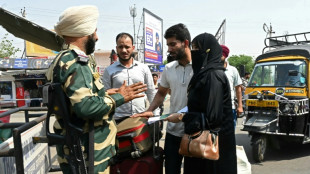
-
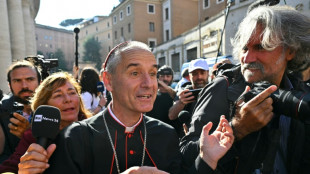 Cardinals run the media gauntlet ahead of conclave
Cardinals run the media gauntlet ahead of conclave
-
BP profit drops 70% amid pivot back to oil and gas
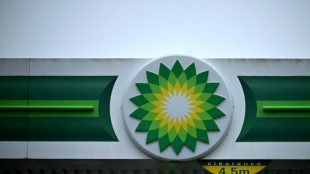
-
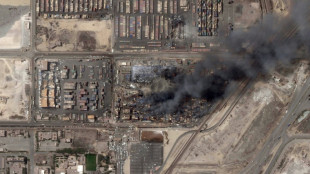 Iran says fire contained after deadly blast at key port
Iran says fire contained after deadly blast at key port
-
Irish rappers Kneecap deny support for Hamas, Hezbollah

-
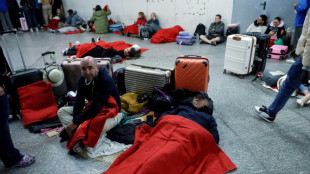 Blackout plunges Spain into chaotic night of darkness
Blackout plunges Spain into chaotic night of darkness
-
Convicted cardinal confirms he will sit out conclave
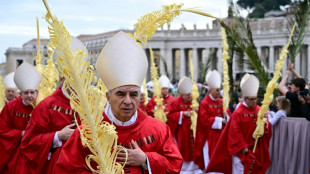
-
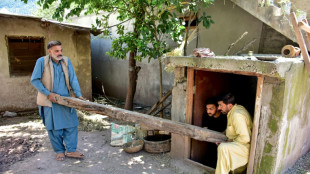 Kashmiris fortify bunkers anticipating India-Pakistan crossfire
Kashmiris fortify bunkers anticipating India-Pakistan crossfire
-
Adidas warns US tariffs to push up prices
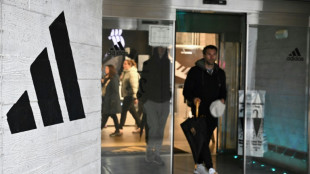
-
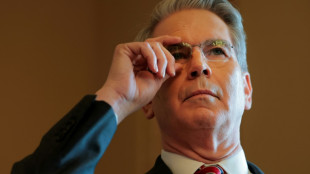 Markets boosted as Trump softens tariff pain for auto firms
Markets boosted as Trump softens tariff pain for auto firms
-
Suryavanshi, 14, dubbed 'next superstar' after batting records tumble
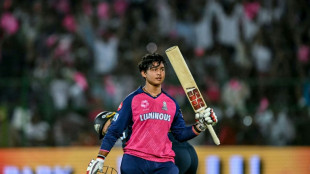
-
 Australian doubles player Purcell accepts 18-month doping ban
Australian doubles player Purcell accepts 18-month doping ban
-
Kashmir attack unites political foes in India, Pakistan
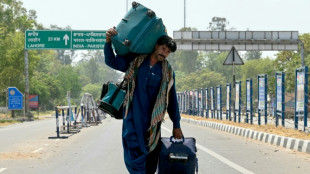
-
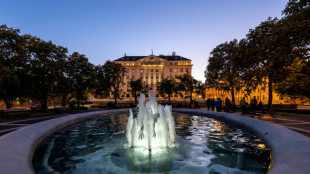 Croatia hotel toasts dizzying century of stars, sovereigns and champagne
Croatia hotel toasts dizzying century of stars, sovereigns and champagne
-
Kenya's desperate need for more snake antivenom
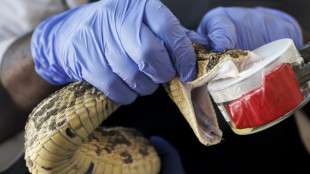
-
 Les Kiss in frame with Wallabies set to name new coach
Les Kiss in frame with Wallabies set to name new coach
-
Cavaliers scorch Heat, Warriors down Rockets in thriller

-
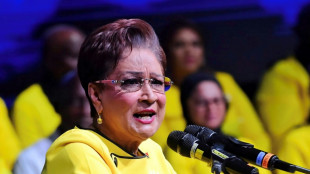 Opposition wins Trinidad and Tobago election, returning Persad-Bissessar as PM
Opposition wins Trinidad and Tobago election, returning Persad-Bissessar as PM
-
Study sheds light on origin of Australia's odd echidna

-
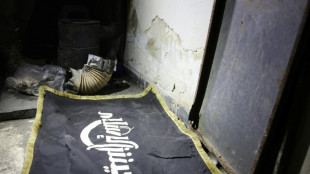 France tries Syrian Islamist rebel ex-spokesman on war crime charges
France tries Syrian Islamist rebel ex-spokesman on war crime charges
-
Trump boasts of 'fun' 100 days, but Americans disenchanted
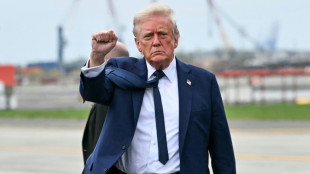
-
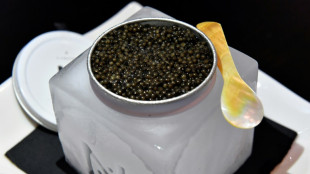 Elitist no more, caviar is turning casual
Elitist no more, caviar is turning casual
-
Amnesty accuses Israel of 'live-streamed genocide' against Gaza Palestinians

-
 Inter slump puts season at risk ahead of daunting Barca trip
Inter slump puts season at risk ahead of daunting Barca trip
-
Power returns to most of Spain, Portugal after massive blackout

-
 'I have hope': Vietnam Babylift survivor's search for birth mother
'I have hope': Vietnam Babylift survivor's search for birth mother
-
US climate assessment thrown into doubt as Trump dismisses authors

-
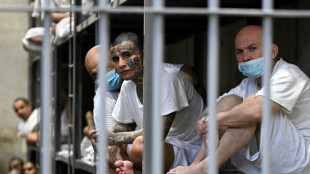 Venezuelan president slams US over little girl's 'abduction'
Venezuelan president slams US over little girl's 'abduction'
-
Hard-right upstarts eye big gains in local UK polls
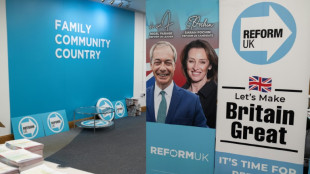
-
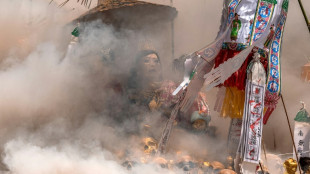 Skulls, smoke and spirits: Thai ceremony for the unclaimed dead
Skulls, smoke and spirits: Thai ceremony for the unclaimed dead
-
Canada's Carney: political newcomer who says he's best in a crisis

-
 Cavaliers scorch Heat to seal series sweep
Cavaliers scorch Heat to seal series sweep
-
Dead salmon create election stink on Australian island
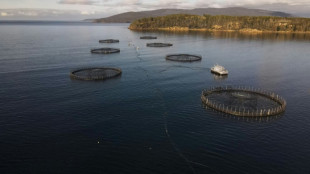
-
 Mic check: Singapore's podcast boom amplifies opposition voices
Mic check: Singapore's podcast boom amplifies opposition voices
-
Markets rise as traders gear up for earnings, key jobs data
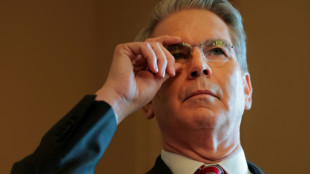
-
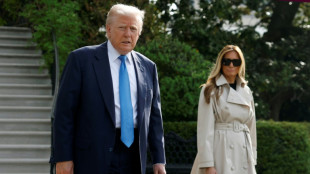 Congress passes 'revenge porn' ban, sending it to Trump
Congress passes 'revenge porn' ban, sending it to Trump
-
Spain and Portugal work to restore power after massive blackout

-
 Less-thirsty rice offers hope in drought-stricken Chile
Less-thirsty rice offers hope in drought-stricken Chile
-
Yamal stardust could give Barca edge on Inter Milan

-
 Magna Terra Retains Large Drill Ready Boleadora Project From Newmont
Magna Terra Retains Large Drill Ready Boleadora Project From Newmont
-
VueReal Expands Reference Design Kit Portfolio with Industry-Specific Bundles to Accelerate MicroLED Commercialization


Saudia Arabia's growing cinema soft power
Accompanying Naomi Campbell on the red carpet at the Cannes Film Festival last week was one of cinema's most powerful men -- and he represents a country where cinemas were banned until five years ago.
Mohammed Al Turki, 36, heads Saudi Arabia's Red Sea Film Foundation, his name splashed all over posters and movie credits at the world's biggest cinema gathering on the French Riviera.
The foundation, formed two years ago, holds its own annual festival and has already financed 168 movies, including eight in the official selection at Cannes this year.
Among them was festival opener "Jeanne du Barry" about a French prostitute falling in love with King Louis XV, played by Johnny Depp.
Others seemed equally at odds with traditional Saudi values -- female-focused films such as "Four Daughters" about the religious radicalisation of Tunisian girls, or "Goodbye Julia" about a Sudanese woman and her overbearing conservative husband.
"We have learned to respect other cultures," Emad Iskandar, director of the Red Sea Film Foundation, told AFP.
He said the foundation focuses on Arab and African filmmakers, though the precise definition seems flexible: the French director of "Jeanne du Barry", Maiwenn, qualified thanks to her Algerian father.
"As long as we have the resources, we want to serve the region, but also take the opportunity to learn more," Iskandar added.
Al Turki's foundation also sponsored a gala for women, attended by Catherine Deneuve, Katie Holmes and supermodel Campbell.
"MO!! Proud of all your doing @redseafilm creating history of many 1st's and Changing the narrative," Campbell wrote of Al Turki on her Instagram.
- Whitewashing? -
Saudi largesse for the arts has boomed under the kingdom's de facto ruler, Crown Prince Mohammed bin Salman, with billions pouring into previously taboo areas such as music, fashion and sports.
Human Rights Watch says this is designed to "whitewash its dismal rights record" and that, despite recent reforms, Saudi Arabia continues to repress civil society, execute dissidents, discriminate against women and bury the investigation into the 2018 murder of journalist Jamal Khashoggi.
But most Saudis back the reforms, and its officials say it is absurd to expect the kingdom to turn into a liberal paradise overnight.
Accusations of whitewashing "sadden us more than anything else," said Iskander.
"Come to visit and get to know Saudi Arabia and then talk about us. The West has arrived where it is after years of wars and debates. We are a 90-year-old state -- be patient."
In any case, the relentless PR campaign is working. The Saudi presence at Cannes felt less controversial than that of Depp, still widely branded as toxic since his court battle with ex-wife Amber Heard.
Cannes director Thierry Fremaux celebrated the kingdom's interest in "producing films and allowing artists to emerge".
"Saudi Arabia is evolving," he told Variety.
- 'More and more present' -
All over Cannes were adverts calling on producers and directors to shoot in Saudi Arabia, while its pavilion showed off the work of its own young directors.
"Every year Saudi Arabia asks for a bigger pavilion, more facilities, to be more and more present," said Guillaume Esmiol, head of the Cannes Film Market that runs alongside the festival.
Saudi Arabia is not the only country in the region investing massively in cinema: rival Qatar financed 13 films at Cannes this year, including three in the main competition.
Some have little or no connection to the Middle East.
"We have a lot of French productions," Fatma Hassan Alremaihi, Doha Film Institute CEO, told AFP.
"We don't want to be insular, we want our filmmakers to be open to other regions and other filmmakers and work with them."
She had no qualms that such investments were aimed at spreading Qatar's soft power.
"Who doesn't do that? The US does that with their Hollywood films... At least we are doing what we believe in, and we are not losing our identity at the same time."
X.Karnes--AMWN



